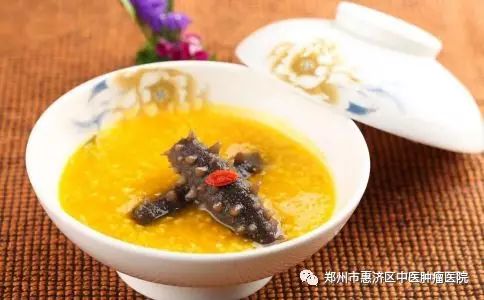Qi deficiency primarily manifests as a tendency to speak little, lethargy, and a pale complexion. So, what causes Qi deficiency? How can it be managed?

There are three main causes of Qi deficiency
1. Prolonged Lying
There is a saying: “Eating well is not as good as dumplings, and being comfortable is not as good as lying down.” Since labor can damage Qi, we might as well lie down every day. However, sometimes lying in bed for too long can make one feel even more fatigued. Why is that?
The Huangdi Neijing states that prolonged lying can harm Qi! The characteristic of Qi is movement, but if you are always lying still, Qi cannot properly expand and move, leading to a slowdown in its flow and damage to the Qi mechanism. The first organ affected is the spleen, which is located in the central part of the body and acts as a transit station for Qi, regulating its ascent and descent. “The spleen governs the four limbs,” and if the limbs are inactive, it naturally affects the spleen’s function. Therefore, individuals who are bedridden often have poor appetites and impaired digestion, reducing their ability to absorb nutrients, which in turn decreases the generation of postnatal Qi, ultimately harming Qi.
2. Excessive Fatigue
Traditional Chinese Medicine states, “Labor consumes Qi.” We often see many cases of colds occurring during periods of fatigue. Why does labor consume Qi? Because Qi is a form of energy that constantly performs physiological functions. Work and study rely on this energy. If you utilize this energy within a normal range and regularly replenish it with sufficient nutrients, converting it into new energy, your Qi will be consumed slowly.
However, if you overexert yourself without timely replenishment, the expenditure and supply of energy become unbalanced, leading to rapid depletion of Qi. This can be likened to the capital of life; if you overspend in youth, you will have to live frugally in old age.

3. Lack of Activity
Simply put, people need to be active to generate heat. The Qi of the human body must continuously interact and absorb from the natural atmosphere. If you do not exercise, this energy stagnates and loses its vitality.
How to Manage Qi Deficiency
1. Medicinal Herbs
When managing Qi deficiency, one can select herbs that tonify Qi, such as Ren Shen (Ginseng), Xi Yang Shen (American Ginseng), Dang Shen (Codonopsis), Tai Zi Shen (Pseudostellaria), Fu Ling (Poria), Shan Yao (Chinese Yam), Bai Zhu (White Atractylodes), Huang Qi (Astragalus), Ling Zhi (Reishi Mushroom), Da Zao (Jujube), Wu Wei Zi (Schisandra), and Jiu Gan Cao (Licorice). In addition to these, one can also choose some Chinese patent medicines that have similar Qi tonifying effects. However, it is important to note that patients with hypertension should avoid using Ren Shen, Xi Yang Shen, and Wu Wei Zi.
2. Exercise
Women with Qi deficiency should pay attention to participating in more physical activities to enhance their constitution. When exercising, they can choose methods and activities based on their physical capabilities. Qi deficiency patients can opt for traditional fitness methods, such as practicing Tai Chi, Tai Chi Sword, and health exercises. They can also practice the “Chui” (Blowing) technique in Qigong, which helps to strengthen kidney Qi and fortify the bones.

3. Diet
In terms of diet, individuals with Qi deficiency should consume more Qi-tonifying foods, such as millet, glutinous rice, japonica rice, lentils, carrots, tofu, sweet potatoes, rabbit meat, chicken, silver carp, yellow croaker, eggs, pig stomach, potatoes, shiitake mushrooms, and cauliflower. These foods have good effects on strengthening the spleen and benefiting Qi. Qi tonifying medicinal dishes can also be selected for nourishment.
What to Eat for Qi Deficiency
1. Astragalus Steamed Whole Chicken
Ingredients: One hen (about 800 grams), 30 grams of Huang Qi (Astragalus), a little seasoning.
Method: Place Huang Qi inside the chicken’s cavity with seasoning and steam for 2 hours. Consume in 2-3 portions.
2. Dried Tangerine Peel Duck
Ingredients: One duck, 10 grams of Ren Shen (Ginseng), 10 grams of Huaishan (Chinese Yam), a little seasoning.
Method: Place Ren Shen inside the duck’s cavity, cook until done, add seasoning, then add Huaishan and cook for another 15 minutes. Consume in 2-4 portions.

